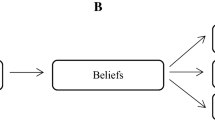Abstract
Casual blood pressures and measures of cardiovascular and behavioral reactions to neutral and confrontive interactions were obtained from 13 essential hypertensive patients who received training in anger management and 9 no-treatment control patients. At pre- and posttraining, heart rate (HR) and blood pressure (BP) were measured (a) at rest and (b) during role-play interactions consisting of neutral and confrontation scenes. Behavioral responses were also coded for each interaction. For treatment subjects, a 6-week program in anger management was conducted, which included relaxation training, self-statement modification, and role-play assertiveness training. Treatment subjects exhibited significantly lower casual DBPs at posttraining (M=90.2 mm Hg) than control subjects (M=95.7 mm Hg). Posttreatment casual SBPs for treatment and control subjects were not significantly different. Treatment subjects exhibited significantly more assertive skill and lesser DBP reactivity at posttreatment than their control counterparts during the confrontive interaction but not during the neutral role-play interaction.
Similar content being viewed by others
References
Achmon, J., Granek, M., Golomb, M., and Hart, J. (1989). Behavioral treatment of essential hypertension: A comparison between cognitive therapy and biofeedback of heart rate.Psychosom. Med. 51: 152–164.
Alexander, F. (1939). Emotional factors in essential hypertension: Presentation of a tentative hypothesis.Psychosom. Med. 1: 173–179.
Baer, P. E., Collins, F. H., Bourianoff, G. G., and Ketchel, M. F. (1979). Assessing personality factors in essential hypertension with a brief self-report instrument.Psychosom. Med. 4: 321–330.
Bellack, A. S. (1983). Recurrent problems in the behavioral assessment of social skill.Behav. Res. Ther., 21: 29–41.
Bosley, F., and Allen, T. W. (1989). Stress management training for hypertensives: Cognitive and physiological effects.J. Behav. Med. 12: 77–89.
Chesney, M. A., and Rosenman, R. H. (1985).Anger and Hostility in Cardiovascular and Behavioral Disorders, Hemisphere, New York.
Diamond, E. L. (1982). The role of anger and hostility in essential hypertension and coronary heart disease.Psychol. Bull. 92: 410–433.
Eisenberg, D. M., Delbranco, T. L., Berkey, C. S., Kaptchuk, T. J., Kupelnick, B., Kuhl, J., and Chalmers, T. C. (1993). Cognitive behavioral techniques for hypertension: Are they effective?Ann. Intern. Med. 118: 964–972.
Gentry, W. D., Chesney, A. P., Gary, H. E., Hall, R. P., and Harburg, E. (1982). Habitual anger-coping styles. I. Effect on mean blood pressure and risk for essential hypertension.Psychosom. Med. 44: 195–201.
Harburg, E., Blakelock, E. H., and Roeper, P. J. (1979). Resentful and reflective coping with arbitrary authority and blood pressure: Detroit.Psychosom. Med. 41: 189–202.
Keane, T. M., Martin, J. E., Berler, E. S., Wooten, L. S., Fleece, E. L., and Williams, J. G. (1982). Are hypertensives less assertive? A controlled evaluation.J. Consult. Clin. Psychol. 50: 499–508.
Larkin, K. T., and Zayfert, C. (1996). Anger management training in essential hypertensive patients. In Van Hasselt, V. B., and Hersen, M. (eds.).Sourcebook of Psychological Treatment Manuals for Adult Disorders, Plenum Press, New York, pp. 689–716.
Larkin, K. T., Zayfert, C., and McKittrick, T. (1991). Assertion and cardiovascular response to confrontation in borderline essential hypertension.Proceedings of the 12th Annual Scientific Sessions of the Society of Behavioral Medicine, Society of Behavioral Medicine, Rockville, MD, p. 94.
Lehnert, H., Kaluza, K., Vetter, H., Losse, H., and Dorst, K. (1987). Long-term effects of a complex behavioral treatment of essential hypertension.Psychosom. Med. 49: 422–430.
Manuck, S. B. (1994). Cardiovascular reactivity in cardiovascular disease: “Once more unto the breach”.Int. J. Behav. Med. 1: 4–31.
Morrison, R. L., Bellack, A. S., and Manuck, S. B. (1985). Role of social competence in borderline essential hypertension.J. Consult. Clin. Psychol. 53: 248–255.
Niaura, R., and Goldstein, M. G. (1992). Psychological factors affecting physical condition. II. Coronary artery disease and sudden death and hypertension.Psychosomatics 33: 146–155.
Novaco, R. W. (1975).Anger Control: The Development and Evaluation of an Experimental Treatment, D. C. Heath, Lexington, MA.
Schachter, J. (1957). Pain, fear, and anger in hypertensives and normotensives: A psychophysiologic study.Psychosom. Med. 19: 17–29.
Spielberger, C. D. (1988).State-Trait Anger Expression Inventory: Professional Manual, Psychological Assessment Resources, Odessa, FL.
Taylor, C. B., and Fortmann, S. P. (1983). Essential hypertension: Psychosomatic illness review: No. 9 in a series.Psychosomatics 24: 433–448.
Author information
Authors and Affiliations
Rights and permissions
About this article
Cite this article
Larkin, K.T., Zayfert, C. Anger management training with mild essential hypertensive patients. J Behav Med 19, 415–433 (1996). https://doi.org/10.1007/BF01857676
Accepted:
Issue Date:
DOI: https://doi.org/10.1007/BF01857676




